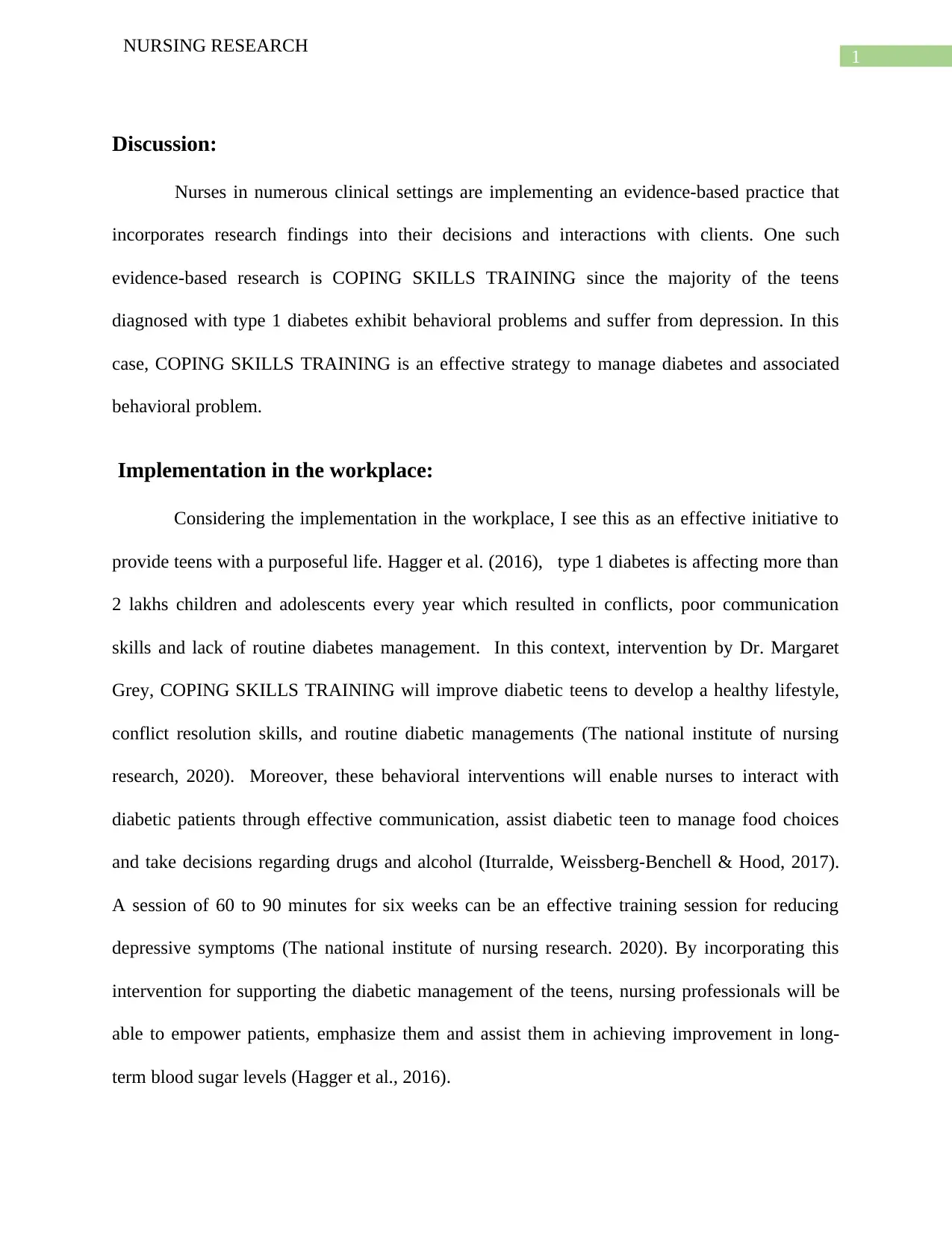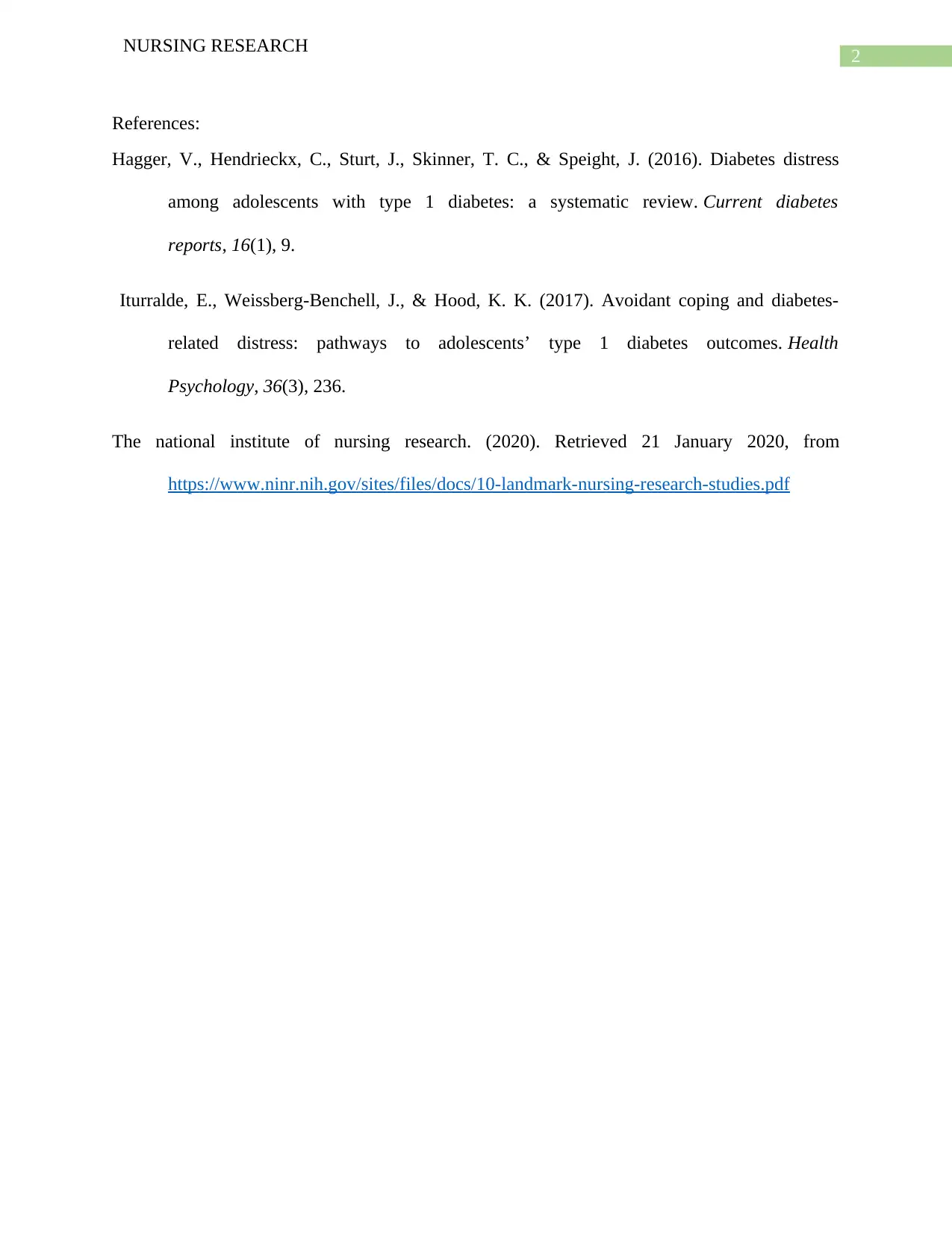Nursing Research: Coping Skills Training for Diabetic Teens
VerifiedAdded on 2022/09/12
|3
|431
|37
Homework Assignment
AI Summary
This nursing research assignment focuses on the implementation of coping skills training as an evidence-based practice for teens diagnosed with type 1 diabetes. The research highlights the prevalence of behavioral problems and depression in this population and presents coping skills training as an effective strategy for managing diabetes and related issues. The assignment discusses the practical application of this intervention in clinical settings, emphasizing its potential to improve communication, conflict resolution, and routine diabetes management. It references key studies and findings, including the work of Dr. Margaret Grey and the National Institute of Nursing Research, to support the efficacy of coping skills training in promoting a healthier lifestyle and empowering patients. The assignment suggests a structured training session and underscores the role of nursing professionals in facilitating positive outcomes, such as improved blood sugar levels and overall well-being.
1 out of 3






![[object Object]](/_next/static/media/star-bottom.7253800d.svg)